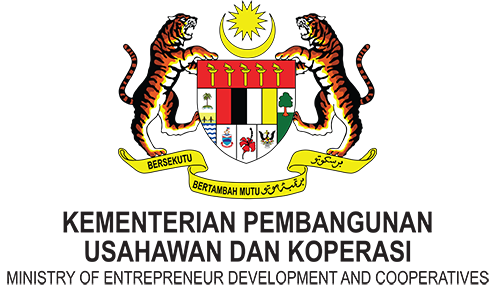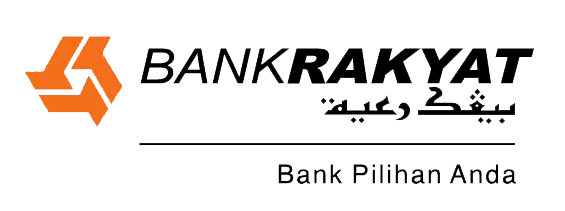KUALA LUMPUR, March 10 — Small and Medium Enterprises (SMEs) constitute over 99 per cent of all businesses in Malaysia. The majority of these SMEs — over 90 per cent — are from the services sector.
Given that there have been many developments in the economy since 2005 such as price inflation, structural changes and change in business trends, a review of the definition was undertaken in 2013 and a new SME definition was endorsed at the 14th National SME Development Council (NSDC) Meeting in July 2013.
The definition was simplified as follows:
Manufacturing sector: Sales turnover not exceeding RM50 million OR full-time employees not exceeding 200 workers.
Services and other sectors: Sales turnover not exceeding RM20 million OR full-time employees not exceeding 75 workers.
Innovation and SMEs
In the current environment, competitiveness at company level depends crucially on the speed with which new products can be brought to the marketplace and new cost-saving improvements made.
Similarly, the creation of wealth and employment depends to a very large extent on the speed with which scientific and technological innovations are converted into practical and attractive solutions.
Innovation requires much more than the ability to turn a new idea into a working product. Efficient flows of technology are not enough -- ready supplies of finance and of business skills are also needed.
There must be accessible protection for intellectual property, and adequate incentives for entrepreneurial drive. In short, what is needed is a dynamic, self-sustaining culture of innovation.
Critical to such a culture of innovation are the small and medium-sized enterprises (SMEs) which have in recent years proved themselves to be the engines of economic growth, and the principle sources of new employment.
In many fields, SMEs provide the channels along which new technologies develop. In sectors such as biotechnology and information technology, relatively small numbers of new, technology-based firms are also key suppliers of new technologies.
Their ability to exploit new technologies, and to respond quickly to changing market needs, give SMEs a pivotal role in the success of many economies. Support for the creation of new ventures and spin-offs from research institutions and large companies, as well as the removal of barriers to their rapid growth and support for the transfer of know-how, also deserve to be accorded the highest priority.
Barriers to SME innovation in Malaysia
Currently, although there are many initiatives to promote innovation, these initiatives are fragmented, disjointed and are not inter-linked.
There exists a gap between the different phases of innovation. Given this, inventors from SMEs as well as those from research organisations face difficulty in accessing the national innovation ecosystem.
Furthermore, SMEs are not linked to commercial funding as financing for many of these innovation initiatives are mainly dependent on public funding.
Intellectual Property (IP) protection can be crucial in the innovation space as it can be used as an “isolating mechanism” of one’s competitive advantage.
Lack of awareness of Intellectual Property Rights (IPRs) is recognised as one of the barriers to innovation where SME innovations get “copied” in the marketplace. Therefore, identification and protection of IPRs is important in the SME space as seen in larger organisations.
When good innovations are created and identified, most SMEs do not have all the essential expertise (technological, business, regulatory etc) in order to move those innovations to the market.
In other words, most SMEs would struggle due to gaps or market barriers to innovation experienced in the process of pushing their innovations along the commercial development process.
Some of the so-called “market barriers to innovation” include financing gaps; lack of access to equipment and infrastructure; business mentoring; legal advisory; IP/market/business strategies; required knowledge of verification and validation for regulatory certification and many others.
The said market barriers must be identified and mechanisms must be put in place in order to successfully move SME innovations to the marketplace.
High Impact Programme 2 for removing market barriers to innovation in Malaysian SMEs
The High Impact Programme 2 (HIP2) – Technology Commercialisation Platform (TCP) of SME Corp’s SME Masterplan 2012-2020 addresses the said market barriers to innovation in Malaysian majority-owned SMEs.
It is one of six programmes within the SME Masterplan which places innovation and SMEs at the heart of Malaysian research and development.
The programme, which is innovative by nature as well as in name, acts as a catalyst at national level – identifying, supporting and developing SMEs to innovate, and thus to renew and strengthen the prosperity of this cluster.
 Figure A illustrates the support mechanism provided by HIP2. The programme was implemented in April 2014 with the launch of PlaTCOM Ventures Sdn Bhd — a wholly-owned subsidiary company of Agensi Inovasi Malaysia (AIM) in collaboration with SME Corp Malaysia.
Figure A illustrates the support mechanism provided by HIP2. The programme was implemented in April 2014 with the launch of PlaTCOM Ventures Sdn Bhd — a wholly-owned subsidiary company of Agensi Inovasi Malaysia (AIM) in collaboration with SME Corp Malaysia.
The programme has been running successfully and has gained much traction in a short period of time producing results by taking national leadership in transfer of technologies from Malaysian universities and other research organisations to SMEs, and supporting the SMEs in moving these innovations to the market.
There have been some notable innovations arising from Malaysian SMEs themselves that HIP2 is currently supporting. Areas of support include end-to-end facilitation from idea to commercialisation – the main purpose of the programme is to remove market barriers to SME innovations.
Are you an Innovative Malaysian SME? You Can Apply for HIP2...
The main eligibility criteria for the programme is three-fold: (1) A Malaysian majority-owned SME (a minimum of 51 per cent shareholdings); (2) A minimum paid-up capital of RM 10,000; and, (3) Commitment of some matching funding for commercial development of the innovation. The programme is open to SMEs from all sectors and more information can be found under HIP2 on www.platcomventures.com
* Dr Viraj Perera is the CEO of PlaTCOM Ventures Sdn Bhd, the national technology commercialisation platform of Malaysia which is a wholly-owned subsidiary of Agensi Inovasi Malaysia (AIM) formed in collabouration with SME Corp Malaysia.






















